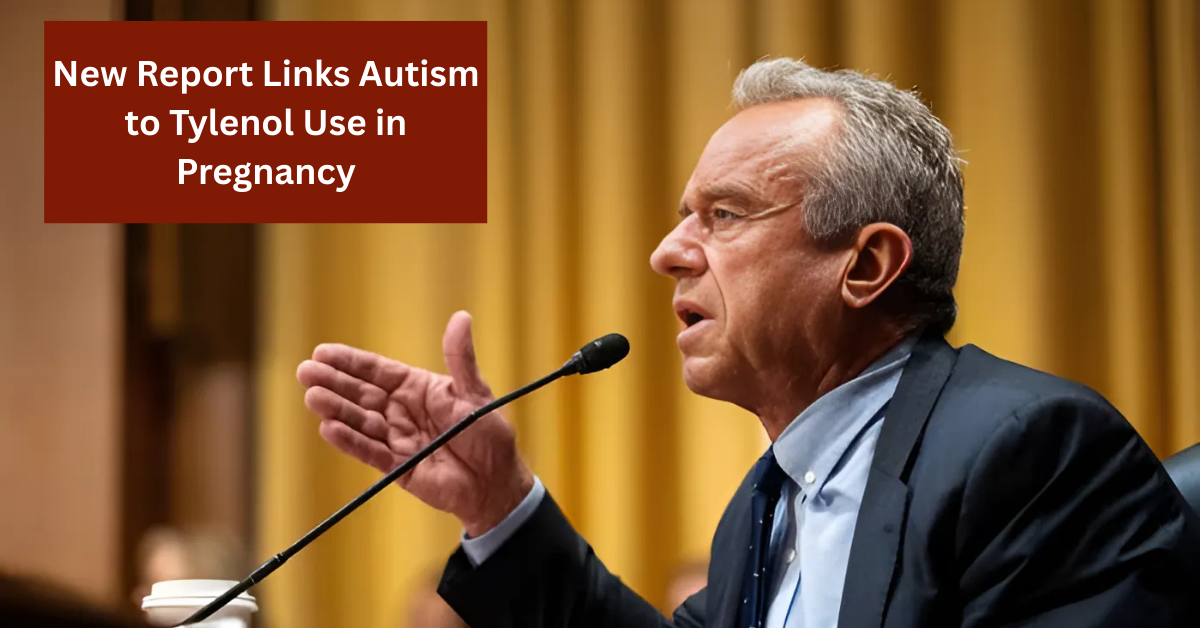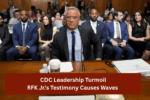Recently, a new report has sparked intense discussion by suggesting a link between Tylenol use during pregnancy and the risk of autism in children. This topic has caught the attention of not only medical experts but also the public, as Tylenol (acetaminophen) is one of the most common pain relief medicines used by pregnant women.
At the center of the controversy is Robert F. Kennedy Jr., an environmental lawyer, who has been vocal about vaccine safety and chemical exposures. His comments around this report have intensified the debate and drawn wide media coverage, especially among communities concerned about child health and safety.
What Does the New Report Say?
The recent study examines data on pregnant women who took Tylenol and follows up on the developmental outcomes of their children. Researchers found a potential association between prenatal exposure to Tylenol and a higher chance of autism spectrum disorder (ASD) in offspring. However, they stress that association does not necessarily mean causation, and more research is needed to confirm these findings.
Scientific experts emphasize that the study adds to a growing conversation about the safety of common medications during pregnancy. While Tylenol has long been considered safe when used as directed, this emerging evidence urges caution until clearer answers are available.
Who Is Robert F. Kennedy Jr. and Why Is His Opinion Important?
Robert F. Kennedy Jr. is a well-known advocate for environmental causes and vaccine safety. Over recent years, he has gained a large following for his outspoken views on the risks of certain chemicals and vaccines. His involvement in the Tylenol-autism discussion has made headlines due to his influence on public opinion, especially among parents.
While many respect his commitment to public health, others criticize his stance for lacking sufficient scientific backing. This divides opinion and makes it harder for non-experts to know what to believe regarding medication use during pregnancy.
Why Is This Topic So Important for Pregnant Women?
Pregnancy is a delicate time when women need to be extra careful about their health choices. Medications can affect the unborn baby’s development, so expecting mothers often consult doctors before taking any medicine. Tylenol has been widely trusted for pain relief and fever reduction during pregnancy because it was thought to cause minimal risk.
However, if further studies confirm the new report’s concerns, it could change guidelines on Tylenol use. Pregnant women must stay informed and discuss any medication use with their healthcare providers to balance relief of symptoms with potential risks to the baby.
What Do Medical Experts Say About Tylenol and Autism?
The medical community is cautious. Many doctors say the current evidence is not strong enough to recommend stopping Tylenol use during pregnancy but agree that unnecessary or long-term use should be avoided. They highlight the importance of consulting health professionals before taking any medication.
Experts also point out that autism is a complex condition likely caused by multiple factors, including genetics and environment. It is unlikely that a single medicine like Tylenol alone accounts for the rise in autism cases. More detailed studies are needed to understand all contributing causes.
How Should Pregnant Women Approach This Information?
It is easy to feel worried when hearing about possible risks linked to everyday drugs. The best advice is to stay calm and informed. Pregnant women should:
- Talk openly with their doctor about any pain or fever symptoms.
- Follow doctor recommendations rather than self-medicating.
- Avoid taking Tylenol or other medicines unnecessarily or for long periods.
- Keep updated with trustworthy medical news and guidelines.
Listening to experts and not panic over headlines helps expectant mothers make safe decisions for themselves and their babies.
The Growing Impact of Social Media in Health Debates
With more people sharing opinions online, misinformation can spread quickly, especially on sensitive topics like pregnancy and child health. RFK Jr.’s large social media presence means his messages reach many who might not read scientific papers but trust him.
This influence can be both helpful and harmful. It raises awareness but can scare people without clear evidence. Therefore, verifying information through credible sources is more critical than ever.
What’s Next for Research and Public Awareness?
Scientists are now conducting larger, more detailed studies to investigate any real links between Tylenol and autism. Public health organizations are also reviewing current medication guidelines for pregnant women to ensure safety and clarity.
The conversation around RFK Jr.’s statements and the new report highlights the need for better communication between researchers, doctors, and the public. Education on how to interpret health risks without panic is key to protecting women and children.
Conclusion
The recent report linking Tylenol use in pregnancy to autism has stirred a heated debate, especially with Robert F. Kennedy Jr.’s involvement. While the findings raise important questions, they are not definitive and should be considered alongside expert medical advice.
Pregnant women should approach medication use carefully and always consult healthcare professionals. Meanwhile, ongoing research will hopefully provide clearer answers in the near future. Staying informed, calm, and cautious is the best way to support a healthy pregnancy and child development.



